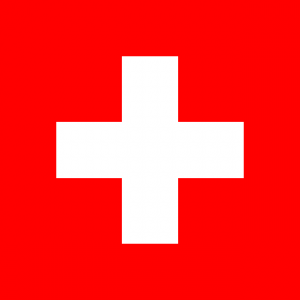Language/Swiss-german/Grammar/Adjectives
Hi Swiss German learners! 😊
In this lesson, we will cover adjectives in Swiss German. Adjectives can be tricky, but don't worry, after this lesson, you will be an expert. We will cover everything from the basics to the more complex rules. Don't hesitate to raise any questions in the comments section below.
Take a moment to explore these relevant pages as you conclude this lesson: Gender, Pronouns, Questions & How to Use Be.
What are Adjectives?[edit | edit source]
Adjectives are words used to describe or modify nouns or pronouns. In other words, adjectives give more information or attributes to something or somebody.
For example:
- A red car
- A happy person
In Swiss German, adjectives must agree in gender and number with the noun they describe.
Gender and Number Agreement[edit | edit source]
Swiss German has three genders: masculine, feminine, and neuter. Adjectives must agree in gender with the noun they describe. For example:
| Swiss German | Pronunciation | English |
|---|---|---|
| der blaue Himmel | [dɛr blauə ˈhimu] | the blue sky (masculine) |
| die blaue Blume | [di blauə ˈblumə] | the blue flower (feminine) |
| das blaue Meer | [das blauə ˈmeɛr] | the blue sea (neuter) |
In the first example, the word 'blau' (blue) agrees with the gender of the noun 'Himmel' (sky). The same applies for the second and third examples.
Furthermore, adjectives must agree in number with the noun they describe. This means that the ending of the adjective might change depending on whether the noun is singular or plural. For example:
| Swiss German | Pronunciation | English |
|---|---|---|
| ein hoher Baum | [aɪ̯n ˈhoərə ba͡ɪ̯m] | a tall tree (singular) |
| hohe Bäume | [ˈhoə bɔ͡ʏ̯mə] | tall trees (plural) |
In the first example, the adjective 'hoch' (tall) is in its singular form, whereas the second example shows the plural form of the same adjective. Note that singular nouns in Swiss German can be either masculine or feminine.
Comparative and superlative forms[edit | edit source]
In Swiss German, comparative and superlative forms of adjectives are formed by adding '-er' and '-st' respectively. For example:
| Swiss German | Pronunciation | English |
|---|---|---|
| schnell | [ʃnɛl] | fast |
| schneller | [ˈʃnɛlər] | faster |
| am schnellsten | [am ˈʃnɛlˌstən] | fastest |
In the first example, we have the basic form of the adjective 'schnell' (fast). The second line shows the comparative form 'schneller' (faster), which adds the '-er' ending to the basic form. The third line shows the superlative 'am schnellsten' (fastest), which adds '-st' and 'am'. Note that some adjectives have irregular comparative and superlative forms.
Position of Adjectives[edit | edit source]
In Swiss German, adjectives usually come before the noun they describe. However, there are some exceptions where adjectives come after the noun. For example:
- Der Mann ist alt. (The man is old.)
- Der Hut ist rot. (The hat is red.)
- Die Blumen sind schön. (The flowers are beautiful.)
- Der Schnee ist weiß. (The snow is white.)
- Das Haus ist groß. (The house is big.)
- Die Sonne ist warm. (The sun is warm.)
In the above examples, the adjective comes before the noun. However, for certain adjectives such as possession or origin, they come after the noun. For example:
| Swiss German | Pronunciation | English |
|---|---|---|
| das Haus meiner Großmutter | [das ha͡ɪs ˈmeɪnər ˈɡrɔsmutər] | my grandmother's house |
| das Kind aus Bern | [das kɪnt ˈa͡ʊs bɛrn] | the child from Bern |
| das Auto mit roten Sitzen | [das ˈauto mɪt ˈroːtən ˈzɪtn̩] | the car with red seats |
In the above examples, the adjective comes after the noun.
Dialogue[edit | edit source]
Nina and Lukas are discussing adjectives in Swiss German.
- Nina: Der See ist tief. (The lake is deep.)
- Lukas: Ja, er ist tiefer als das Meer. (Yes, it is deeper than the sea.)
- Nina: Stimmt, aber das Meer ist am tiefsten. (True, but the sea is the deepest.)
- Lukas: Und der Fluss ist auch tief. (And the river is also deep.)
- Nina: Ja, aber der See ist der tiefste von all den Gewässern. (Yes, but the lake is the deepest of all the bodies of water.)
- Lukas: Interessant! (Interesting!)
Conclusion[edit | edit source]
Congratulations on learning about adjectives in Swiss German. Remember that to improve your Swiss German Grammar, you can use the Polyglot Club website. Find native speakers and ask them any questions!
➡ If you have any questions, please ask them in the comments section below.
➡ Feel free to edit this wiki page if you think it can be improved. 😎
Great work on completing this lesson! Take a moment to investigate these connected pages: Negation, Future Tense, Plurals & Give your Opinion.
Other Lessons[edit | edit source]
- Conditional Mood
- How to Use Be
- Questions
- Give your Opinion
- Future Tense
- Plurals
- Pronouns
- Gender
- Negation
- How to Use Have

